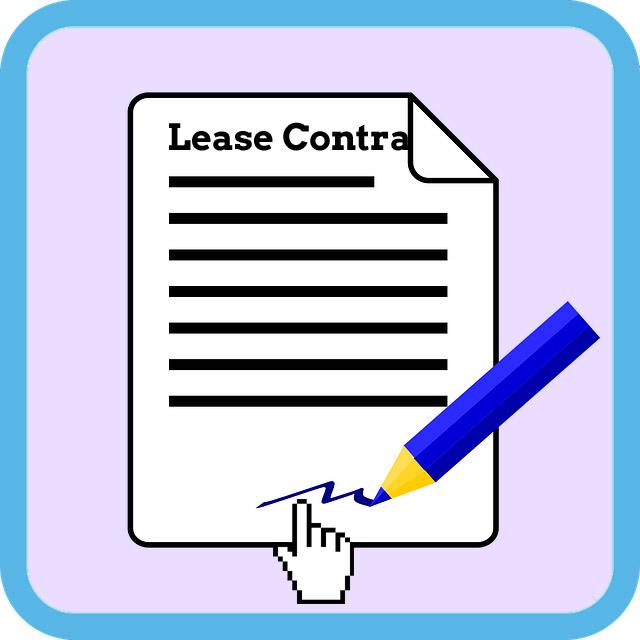
Most landlords know that it’s important to have a signed, written lease agreement. But is a two-page freebie you scrounged up somewhere online going to protect you?
The quality of your lease contract matters. That’s a lesson far too many mom-and-pop landlords and rental investors learn the hard way.
Real estate investments typically cost in the six-figures. That’s a lot of moolah! So you better make dang sure that you protect that investment.
Enter: the battle-ready lease agreement.
1. Guest Clauses
The biggest cause of wear and tear on any property is people. Constant trampling across the carpeting flattens it and gradually ruins it. More people using your investment property means racking up mileage faster. More stress on the flooring, walls, systems; even the yard!
Over my decades as a property manager, I have always conducted walk-through inspections with tenants after they move out. Those rentals with many people living in the unit? Always the heavily damaged ones. And the tenant’s usual line is “It wasn’t me, it was my kids, friends, relatives that caused that wear and tear. But you can’t deduct normal wear and tear from my security deposit anyway, so hand it over.”
How on earth do you handle this as a landlord?
By making sure that you have a strong occupancy clause. Some states and municipalities do have occupancy standards in place but that rarely means anything to a renter. It is mucho importante that you have a strong lease clause that not only specifies how many people will reside in the unit, but also restrict overnight guests to a specific (low) number of nights each month.
Lastly, make sure that your agreement includes these words in as many sections as possible: “Tenant is responsible for the actions, liabilities or damage created by any and all occupants, guests and invitees.”
2. Utility Responsibility
Who pays for what?
Perhaps you figured it’s a no-brainer. Just add what the tenant is responsible for in a nicely-written rental agreement utilities clause and call it a day, right?
Nope. False. Wrong. Everything must be spelled out to the proverbial “T”, either in the lease agreement itself or in a separate landlord-tenant utilities agreement addendum.
For instance, some multi-units do not have separate metering for water. How are water bills split? Does the landlord pay the bill and then bill each tenant? What if one tenant uses more than another?
These are all items that need to be clarified in a landlord-tenant utilities agreement.
And it does not stop there. To make sure that you have a compliant, state-specific lease agreement, check out the state landlord-tenant laws regarding whether it is even permitted to bill the tenants for a shared utility. When that’s done, go and check your local laws, too.
3. Over-Use of Utilities
Some landlords cannot avoid including some utilities and services with the rent. Sadly, what I’ve witnessed is that more often than not, any desire for energy conservation flies out the door when a tenant does not have to pay for usage.
For instance, when heat is included in the rent, I have seen thermostats set to 77 degrees! Ironically, take that same tenant and make them responsible for the utility bills, and suddenly they develop a sense of environmental custodianship. And the thermostat drops to a more affordable 68 degrees.
It’s the same for water, electricity, gas; you name it.
What’s a landlord to do if they include utilities?
Make sure that you include a clause in your lease agreement that if there is evidence of over-usage, the tenant will pay the difference. But be specific about usage, and consider setting a ceiling to trigger billing. Your lease agreement might say “If the gas and electric bill is under $50/month, the landlord will pay it on behalf of the renter as a courtesy. If the gas and electric bill is over $50 in a given month, the renter will be responsible for their own bill, in its entirety.”
Obviously the exact figure varies from property to property, so make sure you know what is a moderate bill for that rental unit. Review the billing history for that unit as a baseline, before setting a ceiling in your landlord-tenant utilities agreement.
(article continues below)
Free Tools to Automate Your Rentals:
4. Utility Malfunction
So often, I have had a tenant call and scream at me that the electric company shut off the electric. Whether it was their own fault or that there was an electrical issue, it was nothing I caused; yet the landlord seems to be the perpetual punching bag.
Include a clause in your lease agreement that clearly states that if a utility or service should become unusable (not caused by the landlord’s doing), the landlord is not liable. This protects you from running around purchasing and delivering candles for your tenant should a storm knock out the electric.
I have had tenants demand that I “must put them up” in a hotel because the central heat dropped. There were times where I have done that as a courtesy, but I do not want to be forced to do it simply because my lease agreement is not more landlord protective.
 5. Property Inspections
5. Property Inspections
How would you know if the renter snuck more people into your property? Or if new pets? How would you know if the property is a complete mess and being damaged?
By visiting the property, of course.
Most leases do contain “right of entry” clauses that specify how much notice must be given. But rarely do I see the words regular inspections used. Add it in!I recommend either quarterly or semi-annually.
This does not give you the right to pop on in and sit down with some popcorn to watch Netflix. However, it does leave you room to make an inspection – just to be sure all is status quo.
And guess what? If the renters know that you will be regularly inspecting the property, they tend to keep it in better order in the long run.
6. Specifics On Use & Repair Liability
Make sure that your tenant understands that if little Timmy throws the matchbox car in the toilet, and it blocks up the plumbing, that they as tenants will be footing the bill. Anything caused by neglect or abuse by a tenant should be paid for by that tenant! Period.
You may think detailed rules are silly nitpicking. Well, it’s that very nitpicking and attention to detail that will save you money! In the rules section, include “nothing in the toilet except toilet tissue and excrement.” Yes, I do get that detailed!
Hardwood floors? Make sure you add a clause in the lease agreement that the tenant must protect the flooring with felt pads under their furniture legs, and no high heels (yep, we are asking their guests to remove the shoes)!
I had a fireplace in one of my rentals and added a clause that it was for décor only and not available to use. By doing this, I am protecting against fire, and liability against injuries.
That does not mean your tenant is going to listen. But if something does happen, guess who is on the hook?
(article continues below)
7. Fees Protection
Let’s face it: there are rules, laws, and regulations all across the board that limit the fees landlords can charge. Especially late fees!
However you likely have a mortgage to pay, and there’s certainly no hesitation by the mortgage company to charge you a late fee. Yet, in so many states, there are absurdly strict landlord limitations.
One little clause may not be the “solve-all” but it sure can assist. Here it is (now this is an insider secret):
“The Tenant understands that it is impossible or extremely difficult to compute the specific damages suffered by the Landlord for Tenant’s failure to make payments when they are due, therefore, the Landlord and Tenant agree that these fees are a reasonable and fair estimate of the costs incurred by the Landlord.”
This clause does not mean that you can charge out the wazoo. But it certainly can assist in states that have the restriction of “reasonable charges” listed in their leasing laws.
These are just a few of many, many clauses that may seem mundane or even ridiculous… until your tenant calls you screaming and flinging demands. Legal clauses are often the only barrier standing between a landlord and a lengthy, expensive lawsuit, so take them seriously – they may just save you thousands of dollars in the not-too-distant future.
8. Property Protection
The lease is protection not only for the landlord against liability, but for physically protecting the property as well. It is crucial for real estate investors to grasp that a renter is not going to go out of the way to protect, let alone take care of, “your stuff”.
So, in order to be sure that they have incentive to care, make sure to add in lease contract clauses for tenants about each item. For example, new beautiful flooring was installed right before Mr. Renter moves in? Don’t just tell him to make sure he puts felt pads on his furniture, include it as a requirement in the landlord lease agreement!
Just had the bathtub refinished? Make sure and include care instructions in the lease!
9. Subleasing Requires Landlord’s Written Permission
Subleasing (AKA subletting) occurs when a tenant rents out your rental property to someone else. It sometimes makes sense for landlords to allow sublets. However, as a landlord you need to know if your tenant has moved out and rented your rental property to another.
The good: Tenants fall into bad times. Perhaps a transfer of their employment comes up. What better way at reducing stress than to have your current renter find a future renter. Be sure that you are in the “know”. Once there is an interested party, have your current renter provide you with all the necessary information to conduct full tenant screening. Once approved, get a brand-new lease ready to be signed.
The bad: Current tenant needs to move. Tenant finds his long-lost cousin who needs a place to live. Secretly, he moves his cousin in and leaves. Your new inherited tenant causes problems. First, there are complaints of noise and parties by the neighboring units. Secondly, you learn of an unauthorized pet. Last, rent remains unpaid. You see, your inherited tenant has no real legal liability. And that leaves a nightmare scenario for the landlord.
The bad scenario is just one of many. So, what is a landlord to do?
- Make sure that your lease provides a strong clause regarding subleasing including the requirement that in order to do so, the landlord must provide written approval.
- Conduct regular inspections.
- As soon as it becomes known that there is an unauthorized person living in the rental unit, send formal notification to the renter.
Making sure your lease agreement details when visitors may become occupants is particularly important in order to secure and protect your property and you.
Final Thoughts
Here’s a secret: these clauses aren’t always 100% enforceable, but they do help. At the end of the lease term, when the inspection is done, and there is a huge scratch on the floor, it is much easier to have that damage deducted (and stand up in court) by sprinkling these landlord-protective clauses throughout.
What clauses do you like to include in your lease agreement? Where have you run into trouble with renters in the past? Share your experience!



























I agree wholeheartedly, most small landlords don’t take their leases seriously enough. A good lease should be bulletproof. It needs to anticipate all of the ways renters can cost landlords money, and guard against them. I can’t tell you how many times I’ve been to court, and the judge hears us each out for a minute, then sighs and says “All right, let me see the lease.” And that’s it: whatever’s in the lease is what they go with.
So true and I have seen so many landlords go into court with absolutely nothing. No lease, no proof of payment, etc. And I have seen as a result, what should have been a 1-2-3 become a total nightmare.
A lease is a lease is a lease… right?
WRONG
I’ve had judges throw out a shoddy lease I was using, and delayed my eviction by 3 months. I actually learned two nasty lessons from that experience. One was to use a ball buster of a lease, the other was not to invest in super liberal cities with extremely tenant-friendly laws
And if you are in one of the bigger cities, like Philly or Chicago…… you better be sure you have a lease that meets at least state rules and sometimes local ones. Never assume…
You’re right. You have to address every “What if…?” scenario or you will be sweating bullets when one of those issues, left out of lease, occurs. I occupy my property which complicates matters. . I have the nicest tenant in the world until there’s a problem , then he becomes a ‘literate’ bully with 2 page emails that really angered me by his unfair and insulting insinuations, thrown in with his grievance. For the 5 years he’s being a tenant I’ve had 2 issues with him, enough to legitimately evict , but he doesn’t realize or appreciate my generosity. He’s caused me so much stress, especially during a period of emotional and financial hardship, that I finally told him if he has complaints, they would have to be addressed, via email, by his co-tenant and girlfriend, who can write a less contentious letter. I wasn’t going to be subjected to his abuse on my own property, which I only endured it because I couldn’t afford an empty apartment or to redo it after he left. Fortunately, times are much better financially for me and I don’t have to swallow and put up with his unreasonable behavior from now on.
Hi Gil,
Can I please have a copy of your “ball buster of a lease”
I’ve been burned too many times by tenants in NYC
Love how much you guys mix up the blog topics. Some high-level motivational stuff, some personal finance, some nuts and bolts real estate tips like these. Keep it up!
People always underestimate the power of a good lease agreement. It’s the details that save your bacon in court!
Thanks for the article 🙂
So true Cara! We tell our students all the time – preparing and signing the lease is not a formality!
I added a clause that “Landlord may terminate this lease at any time with 60 days notice”. I did this after having to deal w/ a pain in the ass doctor, then 2nd tenant a military guy. I did offer to use this clause on another tenant , but she settled down- high maintenance type. I feel more comfortable knowing I Can get rid of someone if I want to.
I hear you Joan! Although it can be tough to ask someone to sign a one-sided lease agreement, where you can cancel it at any time but they can’t. Unless they’re on a month-to-month rental agreement?
The other issue with this Joan is that it is not permitted in many states. Many judges frown upon one-sided agreements. And not permitting each party to terminate may not go well if challenged in court.
Hey Deni,
as a renter, My wife and I are coming across this now. My landlord is selling the house we currently lease. Our lease term ends June 30, 2020 and I’m wondering what our rights as renters would be. We have always been current on our rent and worked diligently to keep the property in good condition. Our lease states something like this mentioned above and I’m concerned we would be forced to move out. Do you have any thoughts on this matter,
With Gratitude,
Holland
Any one do an agreement of doing seasonal work for less rent? My anteater will be responsible for snow removal. I want to make sure I am protected if they do not shovel right away, fall and get injured.
Hey AJ, I include in my lease agreement a clause making them responsible for snow removal, and liable in the event of injury. I’ve never had a problem.
That’s iffy. You’re employing them.
My lease agreement states “The landlord shall not pay for any utilities and services and will be the responsibility of the tenants.”
Does this include all utilities and if so which ones are valid in this contract?
It sounds like the tenant is responsible for all utilities, under your lease agreement 🙂
Great ideas for less-obvious lease clauses. I’ve been using the same basic lease agreement for years, definitely time that I upgraded and started taking legal protection more seriously.
Does anyone have an early termination clause? We just had a tenant sign a 1 year lease and then ask to terminate early due to personal issues and she was needing to move out of state. We didn’t have anything noted in our lease about early termination so kind of winged it with her. Updating our lease now to include a lot of stuff I had never even thought of..even though we used a reliable site to create it. Anyways, wondering if you have early termination wording and what kind of fees you charge for it. By the way, I’m in KS.
It can vary by state law, as some states limit how much you can charge. But a common approach is to say that if the tenant terminates the lease early, they’re responsible for continuing to pay rent payments until either the property is re-rented or the lease term ends, whichever comes sooner.
If a tenant is renting my extra bedroom suite in my home which is furnished. When given a good 24 hour written notice can I remove some of the/my furniture for use for another family member else where?.
Hi Jackie, it really depends on your agreement with the tenant. If you agreed to supply them with certain furniture pieces, you can’t just remove them. But if you told them some pieces would only be provided temporarily, that’s a different story.
Great article Denise! I feel another clause that should be in the lease agreement is about subletting. Some people do not realize that subletting is not allowed in most cases.
Excellent point George! Subletting can create a huge nightmare for landlords.
Thanks George! And great point. We will look into this and perhaps expand the article. Thanks for the suggestion!
Too many landlords think of their lease agreement as a formality! Great reminder to use your lease to protect yourself as a landlord.
Thanks Heidi, I couldn’t agree more!
The guest clause is so relevant! I’ve been through a lot and if I haven’t had those my apartment will be fully damaged
Property inspections are ILLEGAL in California. Not even once a year.
Per Department of Real Estate, Attorney General, and California Civil Code 1954. Please be sure you are not providing incorrect information.
Laws vary by state, so what’s a best practice in most states might not be doable in another. Know your state laws before investing!